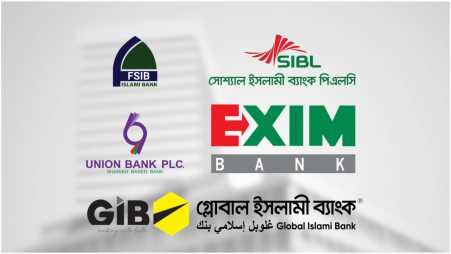Investor Files Writ Questioning Legality of Five Islamic Banks

The High Court has received a writ petition questioning the legality of the government’s plan to merge five financially distressed private banks into a single Shariah-based entity. The move adds new uncertainty to a consolidation process already under intense public scrutiny.
Petition Seeks Protection for Small Investors
The writ was filed by Shahidul Islam, a general shareholder of one of the affected banks, through Barrister Mahsib Hossain. It names the Bangladesh Bank governor, the finance secretary, and other senior officials as respondents.
The petition argues that the government decision does not adequately safeguard the constitutional rights of ordinary investors, particularly those who hold publicly traded shares in the five banks: First Security Islami Bank, Union Bank, Global Islami Bank, Social Islami Bank, and EXIM Bank.
According to the petitioner, shareholders purchased these stocks in good faith through the capital market, yet the authorities moved forward with the merger plan without ensuring that they would receive proportional shares in the proposed new institution, tentatively titled Sammilito Islami Bank or United Islamic Bank.
The writ seeks a High Court directive requiring formal protective measures, including share allocation for existing investors strictly based on their current holdings.

Legal Grounds and Call for Accountability
Barrister Hossain said the right to own property and conduct business are constitutionally protected, and any restructuring must respect those rights. He argued that omitting general shareholders from the transition process amounts to a violation of fundamental rights.
Legal analysts note that while the Bangladesh Bank can initiate mergers under its supervisory authority, any arrangement involving listed companies must also consider market rules, investor obligations, and corporate governance norms. The court’s response may determine how future bank consolidations must treat small shareholders.
Background to the Merger Plan
On 9 October, the Advisory Council of the interim government approved a plan to combine the five struggling Shariah-based banks into a new commercial entity. Officials say the merged bank will operate under professional standards and a refreshed governance framework, aiming to stabilize an overextended segment of the banking sector.

The merger is expected to reshape liabilities, asset quality management, and overall capital strength. However, questions remain over how the transition will address publicly traded shares, existing board structures, and the treatment of minority investors.
The High Court is expected to set a hearing date after preliminary review.












